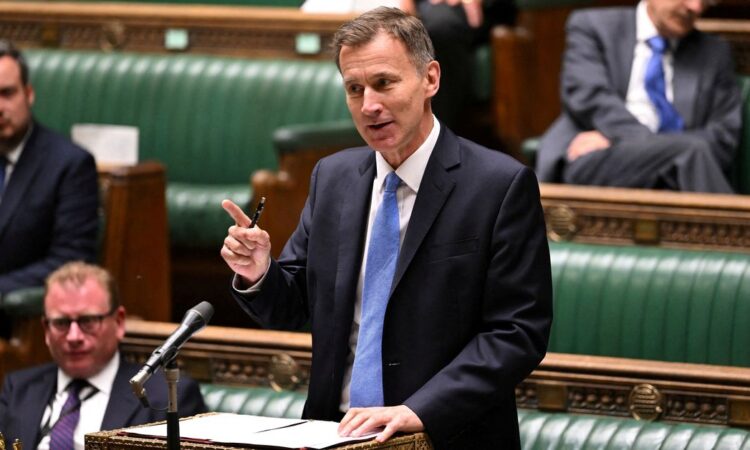
LONDON, June 27 (Reuters Breakingviews) – Banks are getting dragged back into the political spotlight. UK finance minister Jeremy Hunt on Monday joined the ranks of those claiming domestic lenders like Lloyds Banking Group (LLOY.L), NatWest (NWG.L) and Barclays (BARC.L) aren’t doing enough to soften the blow of skyrocketing consumer borrowing costs by hiking savings rates. Lenders shouldn’t be surprised at the renewed heat.
The bedrock of bank profitability is the net interest margin (NIM) – what banks pay out to depositors relative to what they charge mortgage-holders and other borrowers, divided by interest-bearing assets. Last year this was 2.9% on average for Lloyds, NatWest and Barclays. This year, buoyed by spiralling rates, JPMorgan estimates it will be 3.2% for Lloyds and 3.3% for Barclays and NatWest – the highest average level for over a decade, per Refinitiv data. NatWest is expected to make a return on equity in its retail division exceeding 30% this year, according to analyst estimates compiled by Visible Alpha.
Confusingly, investors aren’t pricing lenders’ shares like they’re the beneficiaries of a huge windfall. All three big banks trade at around 5 times 2023 earnings, below their 10-year averages. That’s partly because over 80% of the sector’s 1.7 trillion pounds in mortgage loans are fixed-rate products that don’t immediately throw off more cash when rates go up. But it’s also because analysts have for months flagged the risk of “deposit migration”, where smaller bank competitors hike rates on deposits and tempt savers to jump ship. JPMorgan said on Monday it reckoned base rates would jump to 5.75%, but banks would have to pass on 100% of recent rises to depositors prepared to lock their money up for a set period.
Given all that, it’s tempting to think the market competition will lead to more normal bank NIMs. If so, Hunt wouldn’t need to act on the warnings of the UK Parliament’s Treasury Select Committee, the Bank of England, and the opposition Labour Party, all of whom already flagged how unusually slow British banks have been to pass on rising rates to customers. But there are grounds to be more proactive. Lenders with a big share of the market have an incentive to drag their feet on hiking savings rates: 60% of their deposits are in the form of interest-paying instant access current accounts, where customers may be more worried about the disruption of changing provider than hunting for the best rate.
Hunt may be able to get banks to hike their savings rates merely by veiled threats. If that doesn’t work, he could always encourage National Savings and Investments, a government-backed savings provider, to drag them to do so by upping its rates, or he could use the UK’s 39% stake in NatWest to oblige it to pay more. After all, the government would only be getting banks to do what they should be doing anyway.
Follow @gfhay on Twitter
CONTEXT NEWS
Britain’s finance minister Jeremy Hunt said on June 26 that banks were too slow to pass on increases in central bank interest rates to savers and that the problem needed to be resolved.
Hunt said he met with bank bosses on June 23, where he raised the failure to pass on the rates “in no uncertain terms”.
“It is taking too long for the increase in interest rates to be passed on to savers, particularly with instant access accounts,” Hunt told parliament. “I am working on a solution because I think it is an issue that needs resolving.”
Parliament’s Treasury Select Committee said earlier this month that while British lenders had lifted rates on easy access savings accounts in recent months, they were lagging the Bank of England’s base rate.
The committee on June 8 said that Britain’s four largest banks – Lloyds Banking Group, NatWest, HSBC and Barclays – were offering rates of 0.7% to 1.35% for easy access savings accounts, at a time when the central bank had raised the base rate to 4.5%.
Around 60% of household deposits are held in instant access accounts, the committee said.
Lloyds shares were up 1.1% at 1035 GMT on June 27.
(The author is a Reuters Breakingviews columnist. The opinions expressed are his own.)
Editing by Neil Unmack and Oliver Taslic
Our Standards: The Thomson Reuters Trust Principles.
Opinions expressed are those of the author. They do not reflect the views of Reuters News, which, under the Trust Principles, is committed to integrity, independence, and freedom from bias.






